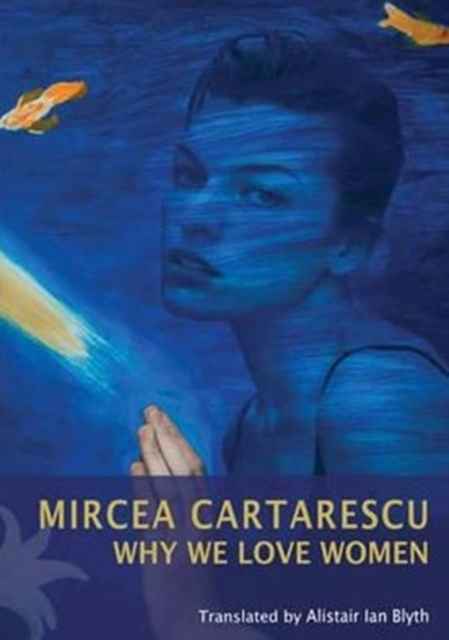Why we Love Women?

Editorial University of Plymouth Press
Fecha de edición noviembre 2011 · Edición nº 1
Idioma español
EAN 9781841022062
144 páginas
Libro
encuadernado en tapa dura
Resumen del libro
The implied question to which the title Why We Love Women introduces a series of narrative answers is not 'Why do you love women?' but 'Why do we love women?' The 'we' refers not to men in general but to the multiple biographical selves and literary personae of Mircea Cartarescu, spanning early childhood, youth and manhood in the closed world of communist Romania and mature adulthood and middle age in a post-communist world of free travel and encounters between cultures (the books settings include San Francisco, Ireland, Amsterdam, Turin, Paris and Krakow). The women of the title are real, imaginary, fictional, fictionalised, literary, intertextual, fantastical, oneiric, ideal, historical, contemporary, tragic, burlesque, mysterious, ordinary, strange, familiar, exotic, homely, perfect, flawed, ethereal, mundane, sacred and profane, each uniquely individual and at the same time universal in her beauty.
Even when at their most (seemingly) biographical, the stories and articles of Why We Love Women are self-consciously literary, intertextual and self-reflexive. In the first story, the epiphany of ineffable female beauty triggered by the young African woman on the subway from Berkeley to San Francisco is framed and introduced in terms of what J. D. Salinger calls in The Laughing Man 'unclassifiably great beauty at first sight'. Cartarescus literary influences are modern and American; his reference point for the revelation of absolute, ineffable female beauty is not Dantes Beatrice but Salingers Mary Hudson. But the woman herself seems to transcend all times and cultures: she is African and ancient Egyptian, wearing an Indian sari, her anklet inscribed in Arabic, and the snaking threads of her Walkman earphones are like an artefact from the dawn of time. She is nothing less than 'the tangible image of beauty itself'.
The journey under an inlet of the San Francisco Bay in 'Little African Women takes Cartarescu to the geographical heart of one of the major influences on his 1980s poetry: the city of the beat generation. The self that Cartarescu describes in the story is 15 years younger, viewed with characteristically ironic hindsight as naïve, awkward, perhaps overawed, travelling abroad for the first time, in the year following the Revolution and the fall of the communist regime. He describes his younger self as imagining himself 'walking in the footsteps of Ferlinghetti and Kerouac'.
Biografía del autor
p Mircea Cartarescu es el más importante narrador rumano de la actualidad. En Impedimenta ha publicado el libro de relatos i Nostalgia /i (1993), que se abre con El Ruletista . Siguieron i Lulu /i (1994) y la trilogía i Cegador /i (1996-2007), conformada por i El ala izquierda /i (1996), i El cuerpo /i (2002) y i El ala derecha /i (2007), todas publicadas en Impedimenta. En 2015 publicó la novela i Solenoide /i , considerada su obra más madura hasta la fecha, y su mayor éxito. Suyos son también i El Levante /i (1990), i Las Bellas Extranjeras /i (2010, Premio Euskadi de Plata), i El ojo castaño de nuestro amor /i (2012), el volumen de relatos i Melancolía /i (2021, de próxima publicación en Impedimenta) y su última novela, i Theodoros /i (2024). Mircea Cartarescu ha recibido otros premios literarios a lo largo de su carrera, entre ellos el Premio Formentor de las Letras en 2018, el Premio FIL de Literatura en Lenguas Romances en 2022 y, en 2024, el Premio Internacional Mondello. Actualmente vive en Bucarest.<br>








